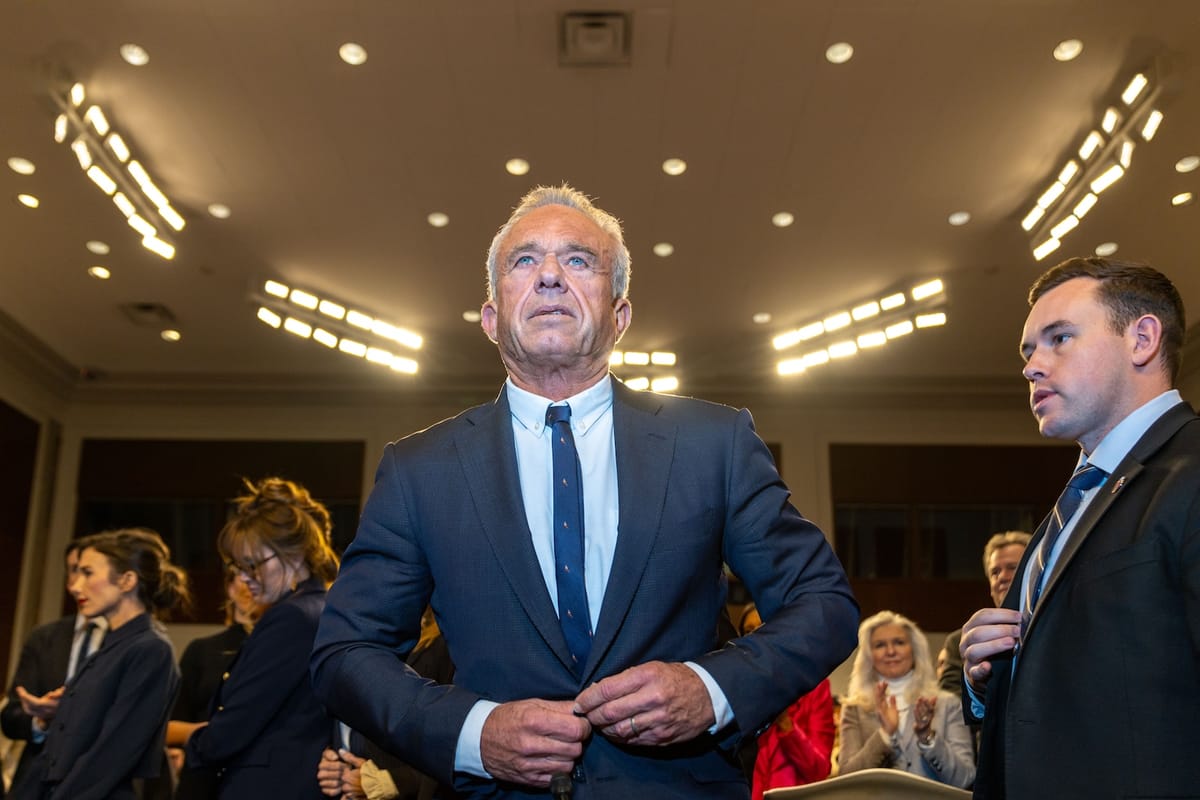

A Health Revolution Kicks Off
Health and Human Services Secretary Robert F. Kennedy Jr. joined West Virginia Governor Patrick Morrisey on March 28 to unveil a groundbreaking shift in school nutrition, slashing $1 billion in taxpayer costs by targeting soda and ultra-processed foods, officially launching his MAHA initiative. The program, launched in Martinsburg, bans these items from school menus, replacing them with wholesome options under the Make America Healthy Again banner. Kennedy declared, ‘Food is medicine,’ emphasizing that nutritious choices can transform public health without federal overreach.
The move scraps a $1 trillion federal nutrition framework that ballooned during past administrations, redirecting funds to state-led efforts. Social Media posts buzz with approval, hailing it as a return to fiscal sanity and a model for other states to emulate.
Saving Taxpayer Dollars
West Virginia’s overhaul slashes $1 billion from a system once laden with subsidies for sugary drinks and processed snacks. By axing soda from SNAP eligibility—a waiver signed March 28—the state cuts annual costs tied to 61 percent of SNAP users citing affordability as a barrier to healthy eating. The savings, effective April 1, free up resources for taxpayers while promoting better diets.
Governor Morrisey’s four pillars—nutrition, exercise, education, and accountability—guide this shift, leveraging state control over federal excess. The $1 billion windfall proves government can shrink its footprint and still deliver results, a win for fiscal responsibility.
Wholesome Menus Take Root
Schools across West Virginia will now serve meals free of artificial dyes and preservatives, with beef tallow replacing seed oils in cooking. Over 300,000 students benefit from this switch, which cuts reliance on $3 trillion in federal health spending by tackling chronic disease at its root. Local farmers supply fresh produce, boosting the state’s $800 million agriculture sector.
The ban on ultra-processed foods aligns with HHS goals to curb obesity, with West Virginia’s 41 percent rate poised to drop. This lean approach empowers communities to thrive without bureaucratic bloat, showcasing individual liberty in action.
Health and Wealth Align
West Virginia’s $1 billion cut tackles a $29 billion national SNAP budget that once funded junk food over nutrition. With soda off the table, the state saves millions yearly, easing a $2 trillion federal deficit burden. Social Media posts spotlight this as a taxpayer victory, with potential to slash healthcare costs long-term.
Morrisey’s plan includes work requirements for SNAP, boosting the state’s last-place workforce participation rate. This dual focus—healthier kids and employed adults—marries economic strength with personal responsibility, cutting reliance on federal handouts.
A Model for the Nation
Kennedy’s visit underscores West Virginia as a trailblazer, with 15 governors eyeing similar waivers by April 1. The $1 billion savings—achieved without new taxes—shows how states can lead where federal programs faltered. Over 3,000 food additives permitted federally face scrutiny, with West Virginia’s ban on seven dyes setting a precedent.
This initiative proves that limited government can deliver big wins. By prioritizing nutrition and thrift, West Virginia offers a roadmap for a healthier, wealthier America, rooted in the belief that taxpayers deserve efficiency and results.
Dues are $12 per year. Member benefits:
✅ Ad-Free Website Viewing
✅ Advocacy for Republican Seniors
✅ 120+ Senior Discounts
✅ Member Only Newsletters